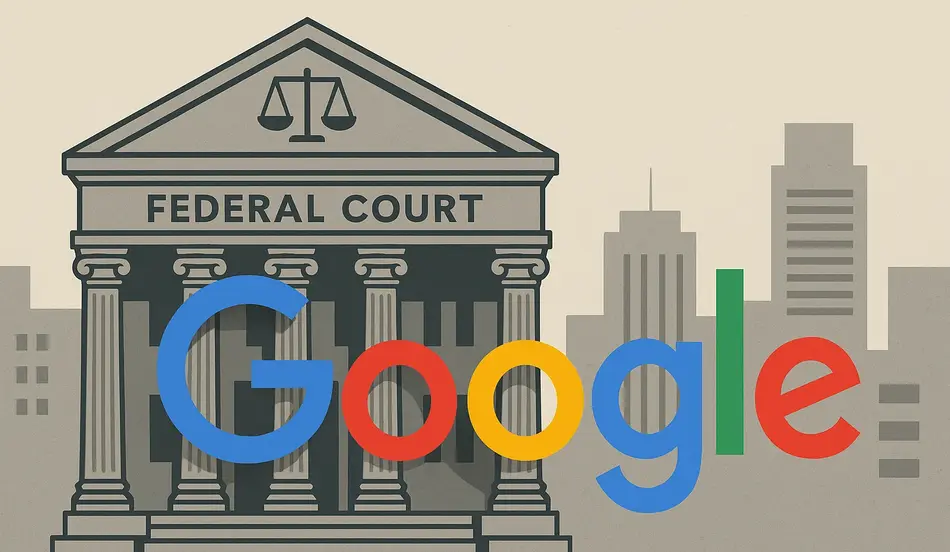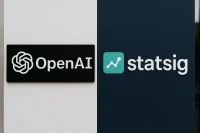The tech world witnessed a historic moment as a federal judge delivered a groundbreaking Google antitrust ruling that fundamentally alters the digital landscape. This landmark decision, which concluded a year-long legal battle, represents a significant shift in how regulators approach monopolistic practices in the technology sector. The Google antitrust ruling not only addresses Google’s dominance in search but also sets new precedents for data sharing and competitive practices that will influence the industry for years to come.
The Historic Verdict: A Measured Response to Monopoly Power
The Google antitrust ruling represents a carefully balanced approach by the federal court, addressing Google’s monopolistic practices without resorting to the drastic measure of breaking up the company. Judge Amit Mehta’s decision acknowledges that Google’s search practices constituted an illegal monopoly while implementing targeted remedies designed to restore competitive balance in the digital marketplace.
This measured response demonstrates the court’s understanding that while Google’s practices were anti-competitive, the company’s services remain valuable to consumers. The ruling focuses on removing barriers to competition rather than dismantling successful products, ensuring that users continue to benefit from Google’s innovations while gaining access to alternative options.
The decision comes after extensive testimony and evidence presentation, including analysis of Google’s exclusive contracts with major technology companies like Apple and Mozilla. These agreements, worth billions of dollars annually, were identified as key mechanisms through which Google maintained its dominant position in the search market.
Looking to Hire Fast?
Hiring managers can now post jobs for free on WhatJobs and connect instantly with millions of active jobseekers worldwide.
Post a Job Now →Key Remedies: Restructuring Digital Competition
Data Sharing Requirements
One of the most significant aspects of the Google antitrust ruling involves mandatory data sharing with competitors. The court has ordered Google to provide anonymized search data to qualified competitors, enabling them to improve their algorithms and offer more competitive services. This requirement addresses one of the fundamental advantages Google has maintained through its massive user base and search volume.
The data sharing mandate represents a novel approach to antitrust enforcement in the digital age. By requiring Google to share certain types of search data, the court aims to level the playing field for smaller search engines and emerging competitors. This measure could potentially lead to more innovative search technologies and better user experiences across the industry.
Elimination of Exclusive Contracts
The Google antitrust ruling specifically targets Google’s exclusive distribution agreements that have tied search, Chrome, Gemini, and Google Assistant to other companies. These contracts, particularly with Apple and other major device manufacturers, have been instrumental in maintaining Google’s market dominance by ensuring its services are pre-installed and set as defaults on billions of devices.
The prohibition of these exclusive contracts opens new opportunities for competitors to secure default positions on devices and browsers. This change could lead to more diverse search options for consumers and create new revenue streams for alternative search providers. The ruling requires Google to allow fair competition for default search engine positions, potentially leading to more competitive bidding processes.
Preservation of Core Assets
Interestingly, the Google antitrust ruling allows Google to retain ownership of Chrome, Gemini, and Google Assistant, rejecting the Department of Justice’s request for structural remedies. This decision reflects the court’s recognition that breaking up these integrated services could harm consumers and reduce innovation. The ruling focuses on behavioral remedies rather than structural changes, allowing Google to maintain its technological ecosystem while addressing anti-competitive practices.
Industry Impact: A New Era of Digital Competition
The Google antitrust ruling signals a new era of increased scrutiny for technology companies, particularly those with significant market power. This decision establishes important precedents for how regulators will approach similar cases involving other tech giants. Companies like Amazon, Meta, and Apple may face similar examinations of their business practices, particularly regarding exclusive agreements and data handling.
For the broader technology industry, this ruling creates opportunities for smaller companies and startups to compete more effectively. The elimination of exclusive contracts and the requirement for data sharing could lead to increased innovation and more diverse product offerings. This competitive environment may also create new job opportunities in the technology sector, particularly for professionals specializing in search technology, data analysis, and competitive strategy.
The ruling also has implications for international technology companies and global competition. As the United States takes a more aggressive stance on tech monopolies, other countries may follow suit, creating a more fragmented but potentially more competitive global technology landscape.
Looking to Hire Fast?
Hiring managers can now post jobs for free on WhatJobs and connect instantly with millions of active jobseekers worldwide.
Post a Job Now →Consumer Benefits: Enhanced Choice and Innovation
The Google antitrust ruling promises significant benefits for consumers, particularly in terms of increased choice and potentially improved services. With the elimination of exclusive contracts, consumers may have more options when setting up new devices or choosing default applications. This increased choice could lead to more personalized digital experiences and better alignment between user preferences and the services they use.
The data sharing requirements could also lead to improved search technologies across the board. As competitors gain access to anonymized search data, they may be able to develop more sophisticated algorithms and offer features that better serve specific user needs. This competition could drive innovation in areas like privacy-focused search, specialized search engines for particular industries, and more personalized search experiences.
Additionally, the ruling may lead to more transparent practices regarding data collection and usage. As Google faces increased scrutiny and competition, the company may be motivated to improve its privacy practices and provide users with more control over their data.
Legal and Regulatory Implications
The Google antitrust ruling establishes important legal precedents that will influence future antitrust enforcement in the technology sector. The court’s approach of using behavioral remedies rather than structural changes provides a template for addressing monopolistic practices without disrupting valuable services. This balanced approach may become the standard for future tech antitrust cases.
The ruling also demonstrates the evolving understanding of how traditional antitrust principles apply to digital markets. The focus on data sharing and exclusive contracts reflects regulators’ growing sophistication in understanding the unique characteristics of technology markets, where network effects and data advantages can create significant barriers to competition.
For legal professionals and compliance officers in the technology industry, this ruling provides important guidance on acceptable business practices. Companies will need to carefully review their exclusive agreements and data handling practices to ensure compliance with the new standards established by this case.
Economic Impact: Opportunities and Challenges
The Google antitrust ruling creates both opportunities and challenges for the broader economy. On the positive side, increased competition in the search market could lead to more innovation, better services, and potentially lower costs for businesses that rely on search advertising. The ruling may also create new business opportunities for companies that can leverage the newly available search data to develop competitive products.
However, the ruling also presents challenges for Google and its partners. The company will need to invest significant resources in implementing the required changes, including developing systems for data sharing and restructuring its business relationships. These changes could impact Google’s revenue and profitability in the short term, potentially affecting its ability to invest in new technologies and services.
For investors and stakeholders, the ruling provides clarity on the regulatory environment for technology companies. While the immediate impact may be negative for Google’s stock price, the long-term implications depend on how effectively the company adapts to the new competitive landscape and whether the increased competition leads to overall market growth.
Future Outlook: Adapting to a New Competitive Landscape
The Google antitrust ruling marks the beginning of a new chapter in the technology industry’s evolution. As Google implements the required changes and competitors take advantage of the new opportunities, the digital landscape will likely become more diverse and competitive. This evolution could lead to better services for consumers, more opportunities for technology professionals and job seekers, and a more balanced competitive environment.
The ruling also sets the stage for potential appeals and further legal proceedings. Google has indicated that it may challenge certain aspects of the decision, particularly the data sharing requirements. The final resolution of these issues will determine the long-term impact of the ruling and establish the regulatory framework for the technology industry going forward.
For technology professionals and job seekers, this ruling creates new opportunities in areas like competitive analysis, data privacy, and alternative search technologies. Companies may need to hire additional staff to ensure compliance with the new requirements, while competitors may expand their teams to take advantage of the new competitive opportunities.
Frequently Asked Questions
What is the Google antitrust ruling and why is it significant?
The Google antitrust ruling is a landmark federal court decision that found Google’s search practices constituted an illegal monopoly. This ruling is significant because it establishes new precedents for addressing monopolistic practices in the technology sector while preserving valuable services for consumers.
How does the Google antitrust ruling affect data sharing in the tech industry?
The Google antitrust ruling requires Google to share anonymized search data with qualified competitors, marking a novel approach to antitrust enforcement. This requirement aims to level the playing field for smaller search engines and could lead to more innovative search technologies across the industry.
What are the key remedies imposed by the Google antitrust ruling?
The Google antitrust ruling eliminates Google’s exclusive distribution contracts, requires data sharing with competitors, and allows Google to retain ownership of Chrome, Gemini, and Google Assistant. These behavioral remedies focus on removing barriers to competition rather than breaking up the company.
How will the Google antitrust ruling impact consumers and businesses?
The Google antitrust ruling will likely benefit consumers through increased choice in search engines and potentially improved services due to heightened competition. For businesses, the ruling may create new opportunities in search advertising and technology development while requiring adaptation to a more competitive landscape.
What are the long-term implications of the Google antitrust ruling for the tech industry?
The Google antitrust ruling establishes important precedents for future antitrust enforcement in technology markets and signals increased regulatory scrutiny for tech giants. This ruling may influence similar cases involving other major technology companies and shape the competitive landscape for years to come.
A User’s Journey Through the New Digital Landscape
Imagine Sarah, a marketing professional who has always relied on Google for her search needs because it came pre-installed on all her devices. With the Google antitrust ruling in effect, Sarah now has the opportunity to explore alternative search engines when setting up her new laptop. She discovers a privacy-focused search engine that better aligns with her company’s data protection requirements, and a specialized search tool designed for marketing professionals that provides more relevant results for her industry-specific queries.
As Sarah explores these new options, she notices that the quality of search results has improved across all platforms due to the increased competition. The alternative search engines now offer features that Google previously monopolized, such as advanced filtering options and specialized knowledge graphs. Sarah’s company also benefits from more competitive advertising rates as search engines compete for business clients, allowing her to stretch her marketing budget further while reaching her target audience more effectively.
This transformation represents the broader impact of the Google antitrust ruling – creating a more diverse, competitive, and innovative digital ecosystem that serves users’ specific needs while maintaining the high-quality services they’ve come to expect from technology companies.




